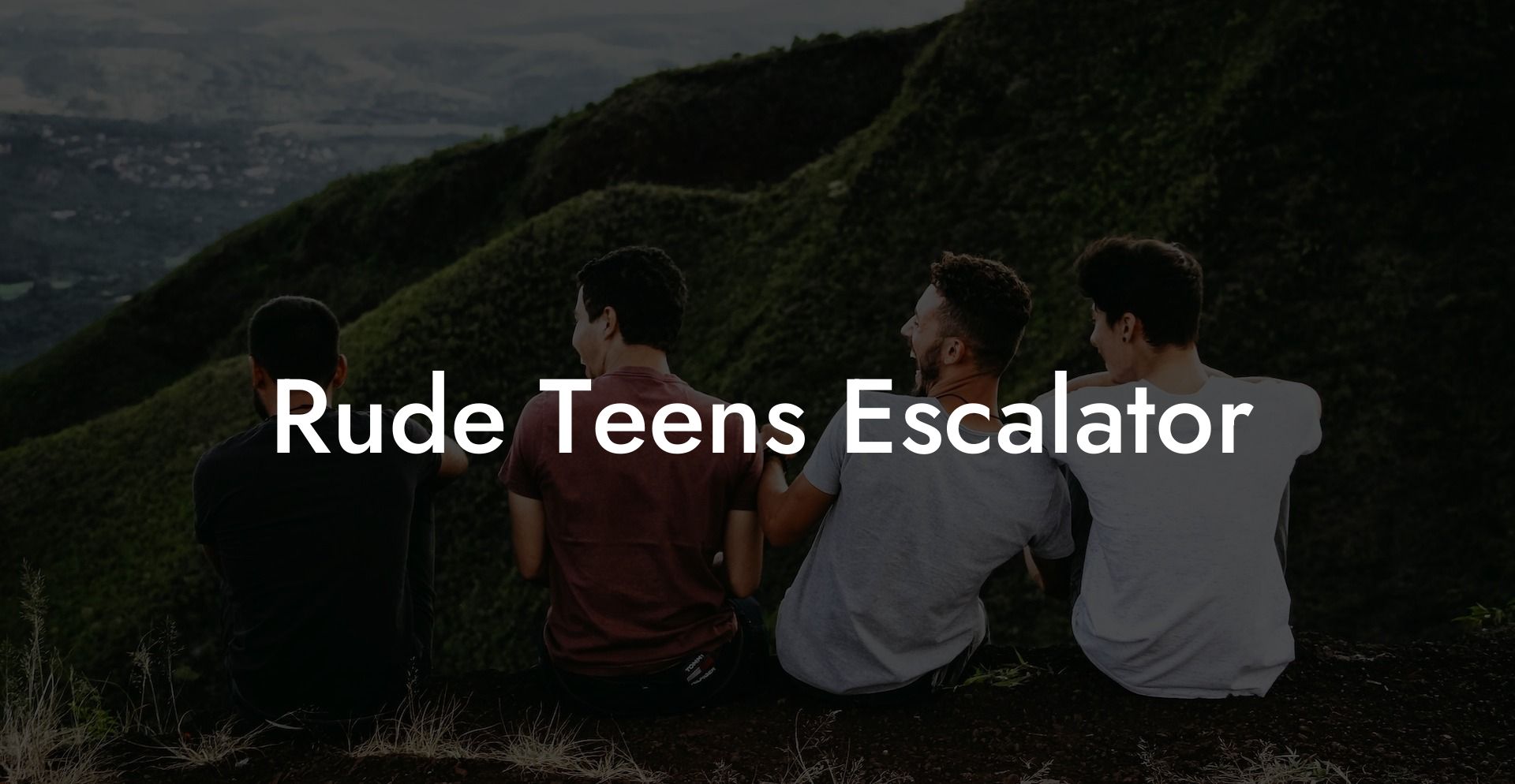Have you ever encountered a group of rude teens on an escalator, blocking your way and making your journey uncomfortable? Unfortunately, this is a common sight in our modern world. In this article, we will delve deeper into the issue of rude behavior among teens and discuss what factors might be contributing to this behavior. Additionally, we will provide a realistic example of how to handle such a situation and share resources on fostering empathy and respect.
Rude Teens Escalator Table of Contents
Understanding the Root Cause of Rude Behavior
With teenagers, it's essential to understand that their behavior might be influenced by various factors, such as peer pressure, hormones, and their environment. Let's take a closer look at these factors:
Peer Pressure and Group Dynamics
- Teens might adopt rude behavior to fit in with their friends or to establish dominance within the group.
- Group mentality can create a sense of invincibility, leading teenagers to act disrespectfully without fear of consequences.
Hormonal Changes
- Adolescence is marked by rapid hormonal changes that significantly impact mood and behavior.
- These hormonal shifts might make it challenging for teens to manage emotions, leading to impulsive and disrespectful actions.
Environmental Factors
- Teens growing up in environments that lack positive role models are more likely to engage in disrespectful behavior.
- Exposure to violence or aggressive behavior can normalize it and make rudeness seem acceptable.
Promoting Respect and Empathy
Fostering an environment where teenagers learn the importance of respect and empathy is crucial. Here are some strategies that parents, educators, and community members can employ:
Modeling Positive Behavior
- Adults should lead by example, demonstrating respect and kindness in their interactions with others.
- Teach age-appropriate conflict resolution skills and ensure teens feel supported as they navigate their emotions.
Encouraging Open Communication
- Foster a safe space for teens to express their feelings and concerns without fear of judgment or retaliation.
- Offer guidance and support to help them gain a better understanding of the consequences and implications of their actions.
Community Engagement
- Encourage teens to participate in community service projects to foster empathy and a sense of social responsibility.
- Collaborate with local organizations to hold workshops and programs that promote healthy relationships, communication, and respect.
Rude Teens Escalator Example:
Imagine you're waiting to step on an escalator and find a group of teens obstructing the pathway. They are laughing and chatting loudly while leaving no space for others to pass. Here's a practical and respectful approach to cope with this situation:
1. Approach the teens calmly and politely ask them to make space for others to pass.
2. If necessary, explain the potential risks and hazards of their behavior (e.g., causing injury or delaying emergency responders).
3. Thank the teens for their cooperation and mention the importance of being respectful and considerate towards others.
Understanding the factors contributing to rude teen behavior is not about making excuses, but rather about addressing the root causes to promote a more respectful and harmonious society. By implementing empathy-building strategies, we can aid adolescents in navigating their emotional journey and foster a culture of kindness.
We hope this guide has been helpful and provided some valuable insights into handling and preventing rude teen behavior on escalators. If you found this article useful, please share it with your friends and family and explore other guides on The Monogamy Experiment that promote healthy interactions within our communities.













